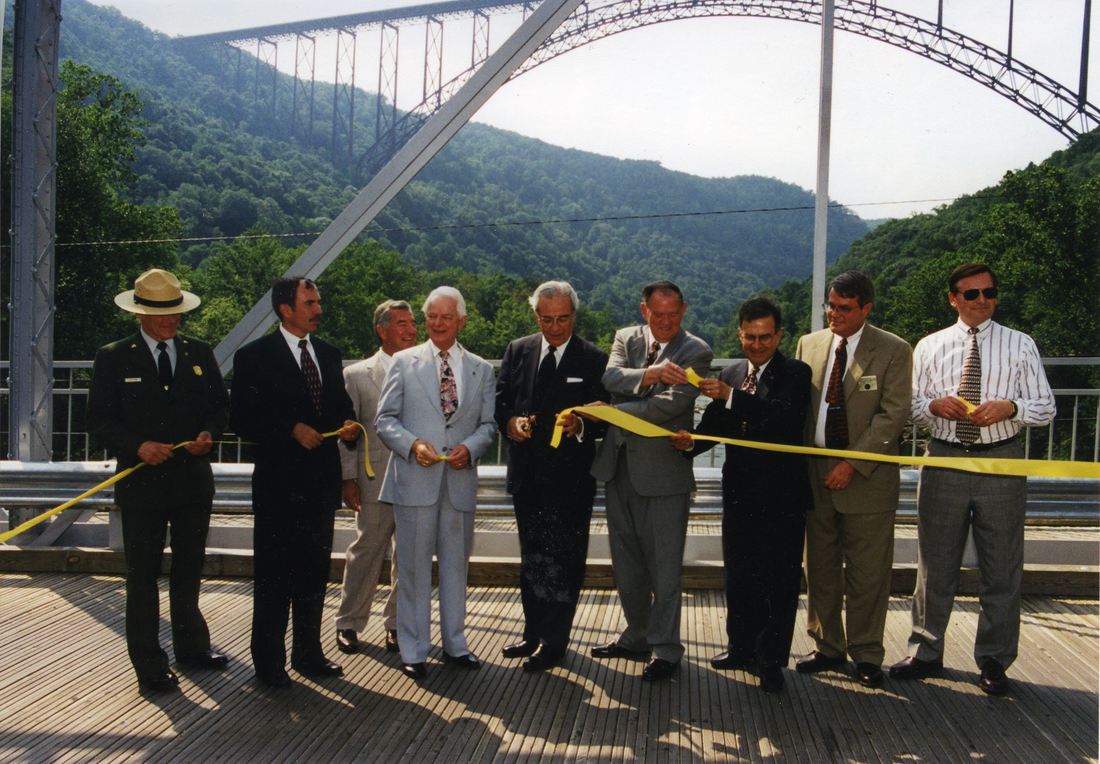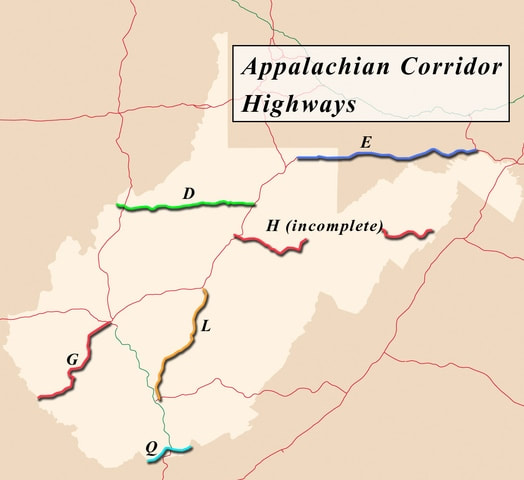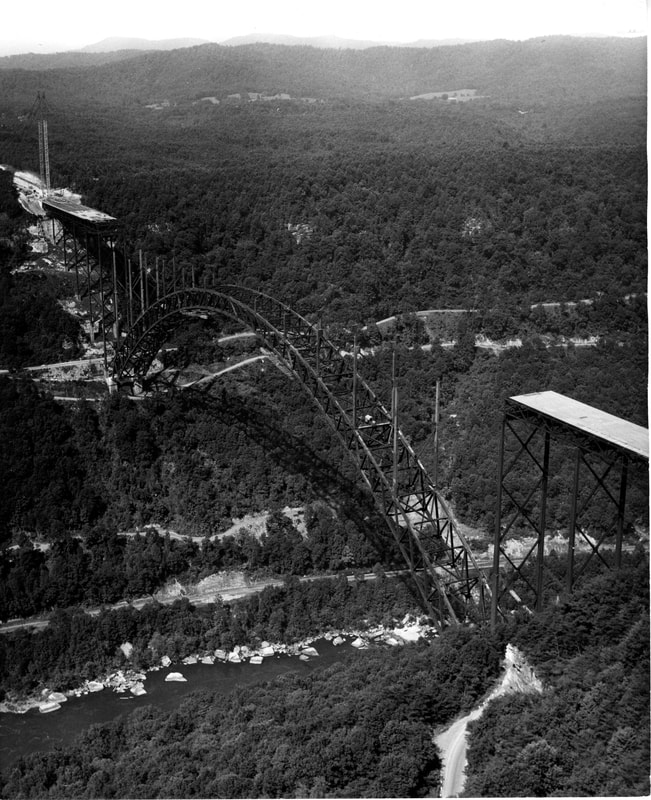In September 1992, the Senate Appropriations Committee approved its Energy and Water and Transportation Appropriations Bills, containing $47 million and $50 million, respectively, for expanding a 25-mile section of Corridor L. After the House and Senate reconciled their bills later that fall, the monies approved for the expansion totaled $71 million. The following year, an additional $104 million was appropriated. This initial expansion project was completed in 1994, bringing the four-lane section of Corridor L as far north as Summersville in Nicholas County, a distance of 46 miles, about 65% of the overall length of the highway. The remaining section of Corridor L was expanded to four lanes over three years between 1994 and 1997. The expansion required over 1,700 workers who moved an estimated 12 million cubic meters of rock in order to widen the roadbed for the highway. Eight additional bridges and two interchanges were also added to the corridor. In total, the project cost $287 million to complete, utilizing state and federal funding sources. Additional projects that were supported in conjunction with the construction on Corridor L included restoration of the town of Thurmond and the Fayette Station Bridge, both historic sites within the New River Gorge National River.  Senator Byrd (fourth from left) dedicates the restored Fayette Station Bridge and expansion of Corridor L in 1999. With Senator Byrd are Congressmen Bob Wise and Nick Joe Rahall (2nd and 3rd from left), Governor Cecil Underwood (5th from left), West Virginia Commissioner of Highways Fred VanKirk (6th from left), and Congressman Alan Mollohan (7th from left). The New River Gorge Bridge looms overhead in the background. In 1999, Senator Byrd, Congressmen Bob Wise, Nick Joe Rahall, and Alan Mollohan, and Governor Cecil Underwood dedicated the improvements to Corridor L and the restored Fayette Station Bridge (the original crossing replaced by the New River Gorge Bridge). Senator Byrd declared that “Corridor L shows that economic development can happen in rural areas like central West Virginia when the infrastructure is there to support it.” The New River Gorge National River and its associated attractions, as well as recreational outfits along the river, continue to bring thousands of visitors to the region annually. In the same year, the West Virginia Legislature officially named its sections of the Appalachian Development Highway System, including Corridor L, in honor of Senator Byrd.
Comments are closed.
|
Welcome to the Byrd Center Blog! We share content here including research from our archival collections, articles from our director, and information on upcoming events.
Categories
All
Archives
July 2023
|
Our Mission: |
The Byrd Center advances representative democracy by promoting a better understanding of the United States Congress and the Constitution through programs and research that engage citizens.
|
Copyright © Robert C. Byrd Center for Congressional History and Education
|



 RSS Feed
RSS Feed
